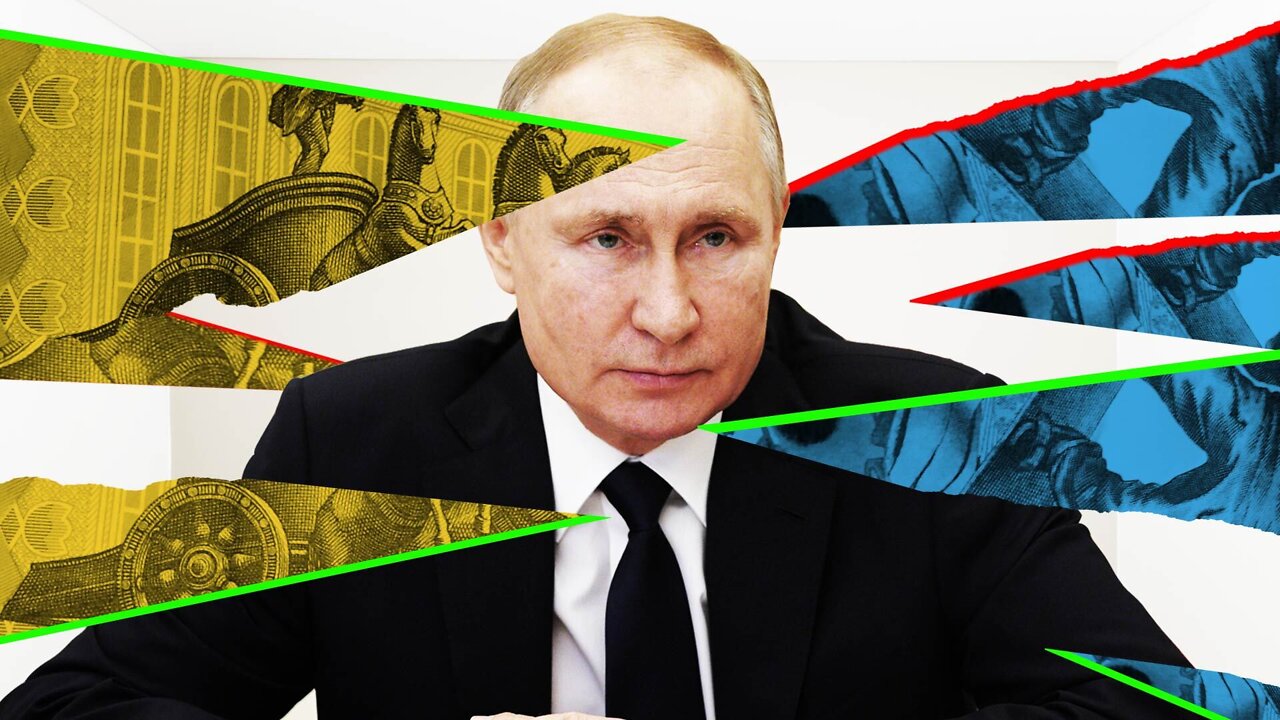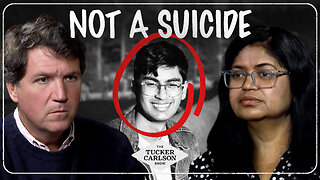Premium Only Content

Why Sanctioning Russia Will Fail
The best way to de-escalate fighting in Ukraine is to give Putin a face-saving exit, not immiserating his people by cutting them off from the world.
In response to the brutal, unprovoked, and illegal invasion of Ukraine, the U.S., the U.K., and countries in the European Union have effectively cut Russia out of the global financial system.
Germany suspended construction of the Nord Stream 2 natural gas pipeline and is talking about beefing up its military. Italy and France are seizing yachts and other assets of Russian citizens on the grounds that they are kleptocrats profiting from an outlaw regime. U.S. Congress is contemplating a bill that would let the government grab Russian assets in America above $5 million and use the proceeds to aid Ukraine.
A slew of private companies have also voluntarily withdrawn from Russia. Apple and Google Pay have stopped working on Moscow's public transit system. Russian filmmakers with ties to the government have been disinvited from showing their work abroad. The International Cat Federation has banned Russian felines from competition.
Such actions are of course understandable in the face of unjustifiable aggression, but will they actually work to facilitate Russia's withdrawal from Ukraine or weaken Vladimir Putin's regime? If history is any guide, the simple answer is no. And not only that, they will mostly harm the already long-suffering people of Russia and quite possibly be used by Putin to justify even more egregious behavior.
Historically, sanctions, especially in authoritarian regimes, often galvanize the targeted countries. U.S. economic sanctions on imperial Japan before World War II were taken as an act of war and encouraged more repression at home and expansion abroad. An October 2019 Government Accountability Office report found sanctions often have unintended consequences, including "negative impacts on human rights or public health."
Sanctions against Cuba, Iran, and Venezuela haven't had the desired effects of regime change and liberalization. In fact they've served as a scapegoat for bad economic and police-state policies.
Sanctions don't work because there are almost always workarounds, notes Johns Hopkins economist Steve Hanke. That's especially true in the current case, with China and India largely abstaining from the Western response.
And why punish regular citizens in autocratic regimes for the crimes of their unelected leaders? Everyday Russians, thousands of whom have been imprisoned for protesting, are also victims of Putin's madness.
Private companies opting to withdraw from Russia voluntarily is less objectionable than government mandated sanctions, but it's also not clear what they accomplish other than stoking jingoism and punishing innocent people.
Backing Putin into a corner politically isn't going to lead him to retreat. Rather than doubling down on sanctions and promising ever-more draconian measures, the Biden administration should be developing "off ramps" or ways to de-escalate the conflict by giving Putin some sort of face-saving measure to withdraw or abide by a settlement that gives maximum peace and safety to Ukraine and stability and security to Europe.
In all likelihood, there is no perfect solution. But as America's experience of the past 20 years should remind us, foreign policy is ultimately not a game of good triumphing over evil or idealism winning out over realism. It's about making the world a better place—not a perfect place.
Photo Credits: Bai Xueqi Xinhua News Agency/Newscom; Ronen Tivony/ZUMA Press/Newscom; Richard B. Levine/Newscom; Celestino Arce/ZUMAPRESS/Newscom; Dominika Zarzycka/Sipa USA/Newscom; Alexander Sayganov / SOPA Images/Newscom; Dmitry Feoktistov/TASS/Sipa USA/Newscom; Aleksandr Podgorchuk/Kommersant Photo / Polaris/Newscom; Dmitry Azarov/Kommersant Photo / Polaris/Newscom; Daniel Ceng Shou-Yi/ZUMAPRESS/Newscom; Abaca Press/Yaghobzadeh Alfred/Abaca/Sipa US/Newscom; Abaca Press/Madiyevskyy Vyacheslav/Ukrinform/Newscom; Madiyevskyy Vyacheslav/Ukrinform/Newscom; Anton Belitsky/ZUMA Press/Newscom; zumaamericaseleven208605; Alexander Miridonov/Kommersant Photo / Polaris/Newscom; Eneas De Troya, CC BY 2.0, via Wikimedia Commons; Alexei Druzhinin/ZUMAPRESS/Newscom
Music: "Raises," by Tomas Novoa.
Written and narrated by Nick Gillespie. Editing by Regan Taylor.
-
 1:12:32
1:12:32
ReasonTV
7 days agoTime for the nuclear option? | Isabelle Boemeke | Just Asking Questions
6103 -
 1:00:27
1:00:27
Trumpet Daily
18 hours ago $3.61 earnedCongress Humiliates Itself - Trumpet Daily | Jan. 15, 2025
6.41K13 -
 1:49:46
1:49:46
Glenn Greenwald
1 day agoTrump Fosters A Peace Deal With Israel & Gaza; Trump's Pressure On Israel Embarrasses His Enemies & Provides Foreign Policy Clues; Rubio & Hegseth On War And Militarism | SYSTEM UPDATE #389
99K176 -
 1:28:46
1:28:46
Donald Trump Jr.
17 hours agoOut of this World: Breaking News Investigation on Secret Alien Aircrafts, Live with Ross Coulthart & Lue Elizondo | TRIGGERED Ep.207
313K460 -
 1:39:31
1:39:31
Space Ice
14 hours agoSpace Ice & Redeye: Battlefield Earth & Rob Schneider
75.9K6 -
 1:33:38
1:33:38
Flyover Conservatives
1 day agoAMANDA GRACE | Prophetic Warnings Ignored: What Happens When Leaders Defy God | FOC Show
62.4K19 -
 59:57
59:57
The StoneZONE with Roger Stone
12 hours agoMEDICAL MURDER: A Sneak Peak into the Making of Died Suddenly 2 | The StoneZONE w/ Roger Stone
52K11 -
 1:07:03
1:07:03
Tucker Carlson
12 hours agoMother of Likely Murdered OpenAI Whistleblower Reveals All, Calls for Investigation of Sam Altman
150K179 -
 55:44
55:44
LFA TV
18 hours agoCongress Humiliates Itself | TRUMPET DAILY 1.15.25 7pm
150K55 -
 1:42:04
1:42:04
2 MIKES LIVE
13 hours ago2 MIKES LIVE #167 News Breakdown Wednesday!
94.3K15